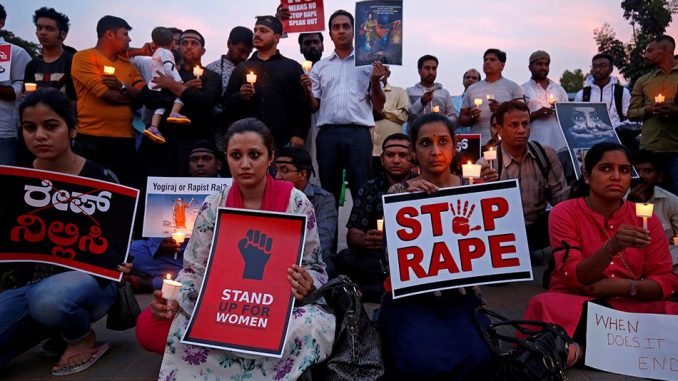
By Toyin Owoseje
Official figures show around 40,000 cases of rape are recorded in India every year
India has established its first national sex offenders registry in it’s latest bid curb the country’s rape epidemic.
The South Asian nation’s government announced the registry following nationwide outrage over a string of high-profile cases of sexual violence against women and children. Official figures show around 40,000 rape cases are recorded in India every year.
The database features 440,000 names including those convicted of rape, gang rape, child sex crimes and sexual harassment and also holds their photo, fingerprints and address.
The gang rape and murder of 23-year-old female physiotherapy intern, Jyoti Singh Pandey on a bus in New Delhi in 2012 sparked protests and the promise of effective reforms. However, five years on and there has been a surge in crime with not enough convictions.
“Whatever we have been doing is not enough … It’s shameful for our whole society,” Mr Rijiju said of latest bid to hold perpetrators accountable.
The announcement comes days after a head teacher and four staff members of a boarding school in northern India were arrested over the rape of a teenage student.
In another shocking case, a seven-year-old girl who was raped with a water hose in Delhi earlier in September.
In January, an eight-month-old baby was raped in New Delhi, and two other girls were assaulted and their bodies mutilated in Haryana.
“For any real change, the government must do the hard work of actually implementing the laws and policies” Jayshree Bajoria of Human Rights Watch told Reuters.
Source: Independent

Leave a Reply